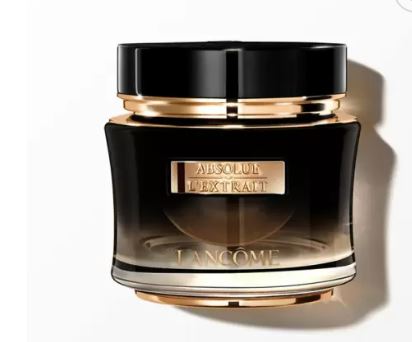
Healthy, glowing skin is a reflection of good hydration. Properly moisturized skin is more resilient, smoother, and less prone to dryness and irritation. But achieving that dewy, supple complexion requires the right combination of moisture and nourishment. This article will explore the essentials of effective moisturization and the role of a high-quality, nourishing cream in maintaining radiant, hydrated skin.
Why Skin Needs Moisture
Daily use of a moisturizing cream (乳霜) is essential for protecting the skin’s natural hydration. Skin is constantly exposed to elements that can deplete its moisture, including harsh weather, pollution, and indoor heating. When hydration is lost, it can lead to dryness, flakiness, and an increased risk of fine lines and wrinkles. Proper moisture levels are essential for maintaining a healthy barrier, which defends against external irritants.
A well-formulated hydrating product not only replenishes lost moisture but also locks it in to keep skin smooth, soft, and resilient. Ingredients like hyaluronic acid, glycerin, and natural oils in these creams act as moisture magnets.
The Role of Key Ingredients in Skin Moisturizers
The effectiveness of any hydration cream largely depends on its ingredients. Different ingredients have unique properties that address specific skin needs. Here are a few key ingredients to look for in a high-quality moisturizer:
- Glycerin: It is another excellent humectant, pulling moisture into the skin and improving its elasticity. It’s gentle and works well for sensitive skin, helping to maintain hydration without irritation.
- Antioxidants: Vitamins C and E, often included in moisturizing formulas, protect the skin from free radicals that can cause premature aging. These antioxidants work to maintain the skin’s natural radiance and resilience.
- Hyaluronic Acid: Known for its ability to hold up to 1,000 times its weight in water, hyaluronic acid is a popular ingredient in many moisturizers. It draws moisture from the air into the skin, making it a powerful hydrator for a plump, smooth complexion.
- Natural Oils: Oils like jojoba, almond, and rosehip are rich in essential fatty acids and vitamins, providing nourishment and sealing in moisture. These oils mimic the skin’s natural lipids, enhancing the barrier function and leaving the skin feeling soft and supple.
How to Apply Moisturizer for Maximum Benefits
The way moisturizer is applied can influence its effectiveness. A few simple tips can make a significant difference in how well the skin absorbs and retains moisture, which are:
- Apply on Damp Skin: These products work best when applied to skin that is slightly damp. This helps to lock in the moisture that’s already present, leaving the skin hydrated for longer.
- Use Gentle, Upward Strokes: When applying cream, use gentle, upward motions. This technique helps to avoid tugging on the skin, which can lead to premature sagging or irritation.
- Don’t Forget the Neck and Décolleté: These areas are often overlooked but are prone to dryness and signs of aging. Extending moisturizer to the neck and chest ensures a consistent and youthful appearance.
- Apply Consistently: Consistency is key to seeing results. Regular application of a nourishing cream keeps skin hydrated and helps maintain a smooth, balanced complexion over time.
The Connection Between Hydration and Anti-Aging
Well-hydrated skin looks and feels youthful, as proper moisture levels minimize the appearance of fine lines and wrinkles. Moisturization can further prevent new wrinkles from forming. When the skin is dry, it tends to lose elasticity, making lines and folds more visible.
Moisturizing products must have anti-aging ingredients, such as peptides or retinol. These ingredients can enhance hydration and also encourage collagen production, improving skin firmness. For anyone aiming to reduce visible signs of aging, a daily routine that includes a hydrating product is essential. Maintaining the skin’s natural moisture balance can slow the progression of wrinkles, keeping skin looking fresh and youthful.
Choosing the Right Nourishing Cream for Your Skin Type
Selecting a moisturizer suited to one’s skin type can make a difference in how effective it is. Here’s a quick guide:
- Dry Skin: Look for rich, oil-based moisturizers with ingredients like shea butter, oils, and ceramides to hydrate and nourish deeply.
- Sensitive Skin: Fragrance-free, hypoallergenic creams with soothing ingredients like aloe vera or chamomile are best to minimize irritation and maintain hydration.
- Combination Skin: Opt for a balanced formula that hydrates without overloading the skin. Moisturizers with a mix of humectants (like glycerin) and lightweight oils are ideal.
- Oily Skin: A lightweight, non-comedogenic gel or water-based moisturizer works well, as it hydrates without clogging pores. Hyaluronic acid is especially beneficial.
Using a high-quality moisturizing cream is a foundational step in any effective skincare routine. A good moisturizer not only provides hydration but also supports the skin’s natural barrier by replenishing and retaining moisture. In turn, it protects the skin from environmental stressors and premature aging. Regular use of a well-formulated cream ensures that the face remains soft, radiant, and resilient against daily challenges.
Write and Win: Participate in Creative writing Contest & International Essay Contest and win fabulous prizes.


